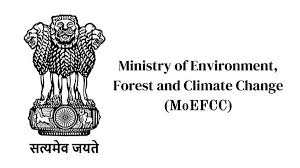National Designated Authority (NDA) to Enable Carbon Emissions Trading Regime:

The Ministry of Environment, Forest and Climate Change recently announced a National Designated Authority (NDA), a mandatory requirement under the provisions of the 2015 Paris Agreement, to enable a carbon emissions trading regime.
- Within the Paris Agreement, a section called Article 6 defines the contours under which such an emissions trading regime or a market can take shape.
- A long-standing bone of contention among countries, Article 6 was finally passed at the 29th edition of the climate Conference of the Parties (COP29) in Baku, Azerbaijan, in November 2024.
- The creation of an NDA is a mandatory requirement under Article 6.
- NDA will be a 21-member committee headed by the Secretary of the Environment Ministry.
- Representatives include officials from the Ministries of External Affairs, Steel, and Renewable Energy, and NITI Aayog.
- The NDA’s responsibilities include
- recommending to the Union government a list of activities that can be considered for the trading of emission reduction units from projects under Article 6;
- modifying them from time to time in line with national sustainable goals, country-specific criteria, and other national priorities;
- receive projects or activities for evaluation, approval, and authorisation;
- authorise the use of emission reduction units from projects for use towards achievement of Nationally Determined Contributions (NDC).
- The NDC refers to commitments by countries to reduce emissions by diverting their energy consumption towards renewable energy sources and taking action to reduce carbon concentrations in the atmosphere.
- India’s NDC commits to reducing its GDP’s emission intensity by 45% by 2030 from 2005 levels, achieving 50% electric power capacity from non-fossil fuel sources by 2030, and creating an additional carbon sink equivalent to 2.5-3 billion tonnes of carbon dioxide by 2030 through afforestation.




